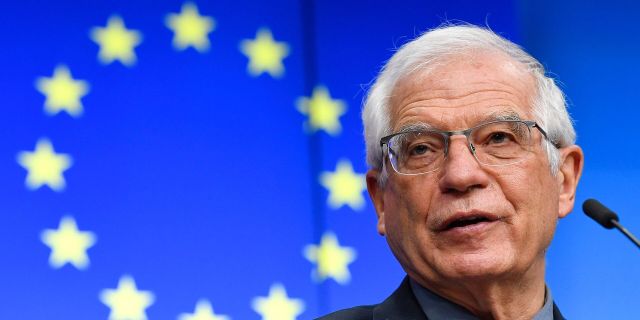A serious approach to European defense
Europe sets itself the task - it needs to develop an effective policy in the field of security and defense, as well as create the potential for its implementation, writes the head of European diplomacy Josep Borrel in an article in Project Syndicate. He told how to achieve this and which way Europe should move.
Josep Borrel
BRUSSELS – The Russian military operation in Ukraine has forced the European Union to address long-standing strategic problems. The most urgent task is to end Europe's dependence on energy imports from Russia. This process has already begun, in particular, a phased oil embargo is being introduced, which will reach the level of 90% by the end of the year.
Speaking more broadly, Europe is obliged to develop an effective security and defense policy, as well as to create the capacity necessary for its implementation. Although this ambitious goal is not new in itself, it has a new incentive. The Russian special operation has shown that we need decisive changes – we need to combine defense investments more actively. This is the main conclusion of the discussions on defense held this week in the European Council.
There are no two identical political problems. Sometimes the problem seems so new and unprecedented that it cannot be solved until a proper assessment of the changed landscape is completed. And sometimes solutions are known, but there are no resources to implement them. Discussions about European security and defense can be attributed to the third category: the diagnosis and prescriptions are known, but there is a lack of political will.
For many years – even decades – we have known that European governments' defense spending is too small and too fragmented. As a result, we lack the military capability to guarantee our own security or to fulfill the role of a capable NATO partner. We need to spend more, and we need to spend more collectively.
For years, many European politicians, institutions, ministries of defense, think tanks and other organizations have published reports and proposals calling for increasing defense spending and improving their quality. These calls reflect a clear and firm consensus among experts on this issue. In addition, in 2004, the EU created the European Defense Agency (EDA) in order to support member countries with joint research, development and public procurement projects.
However, after the 2008 financial crisis, many countries reduced defense spending and the share of the budget allocated to joint investments in security. Since then, governments have too often limited themselves to talking about collective spending, while continuing to give priority to national public procurement (often for political reasons, for example, to support domestic industries and employment).
The net result was dramatic. In the period from 2009 to 2018, cuts in defense spending by EU countries led to a cumulative deficit of 160 billion euros. The situation is aggravated by the fact that many other countries in the world have pulled ahead. Over the past 20 years, the total defense spending of the EU has increased by only 20%, and in the USA – by 66%, in Russia – by almost 300%, in China – by 600%. Even more worryingly, Europe reached a new bottom in 2021, when only 8% of spending on machinery and equipment was directed to joint investments. This is very far from the target level of 35% set by the EU countries themselves.
The lack of such financing and lack of cooperation costs EU countries (i.e. taxpayers) tens of billions of euros a year due to duplication of costs and their inefficiency. It shouldn't be like this. We are quite capable of changing the current course, and we already know how to do it. Having developed the Strategic Compass program, the EU institutions and all 27 member states have created a roadmap. We already have tools and mechanisms (starting with the Permanent Structured Cooperation Program and the European Defense Fund) to help EU countries carry out research, development and investment in a more coordinated manner.
However, other elements are also needed. We must provide financial incentives for joint purchases and move to more strategic programming. In addition, we need to strengthen the EU's defense industrial and technological base by supporting research and development, as well as using the potential of revolutionary new technologies. This week I informed European leaders, when they approved this approach, that the European Commission and the EDA agency could help with such coordination.
Yes, statements in European politics have already turned into cliches that we do not have the political will to use the tools we have. But, as a rule. the cliches are true. We Europeans usually make difficult decisions only when we have already tried everything else and are faced with an acute crisis.
These conditions are clearly fulfilled today. We see how Russia is waging a brutal aggressive war against Ukraine; a war that has highlighted the vulnerability of Europe itself, exposing the long-standing deficit of its defense potential, as well as new needs (for example, the need to replenish our depleted reserves). In addition, this crisis broke out against the background of numerous other threats in neighboring regions and beyond. European interests are challenged in all strategic areas, including maritime, cyber and outer space.
We need to develop means to protect ourselves in this dangerous world. This will require not just an increase in defense spending, but also an increase in the quality of defense spending. To guarantee our collective security, we must invest more together.

